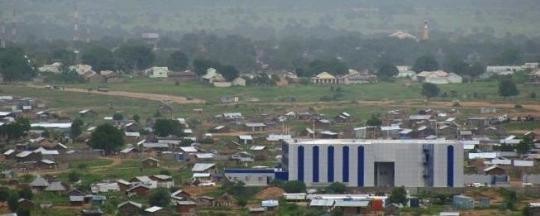South Sudan’s National Security Service (NSS) has become a liability to the people of South Sudan and tortures, detains, and kills citizens instead of its core mandate of gathering and processing security information according to a report released by Human Rights Watch yesterday.
In its latest report on South Sudan titled “‘What, Crime Was I Paying For?”-Abuses by South Sudan’s National Security Service’" the international rights body faulted the NSS of gross human rights abuses such as jabbing needles in prisoners' genitals, pouring melted plastic on their skin and hanging them upside down for long periods.
Electric shocks, gang rapes, abductions, and killings are also abuses carried out by the security agency according to Human Rights Watch.
Established in 2011 — shortly after the country gained independence — South Sudan’s National Security Service has been operating beyond its constitutional mandate of collecting information, conducting analysis, and advising relevant authorities, the report said.
Within months of its establishment, the agency's agents began imprisoning journalists and government critics and carrying out physical and telephonic surveillance.
“Today, it has become one of the government’s most important tools of repression,” the report said.
After the civil war broke out in South Sudan in December 2013, the security agency started a crackdown on people viewed as anti-government and targeted human rights defenders, businessmen, journalists, and students, the report added.
The report is based on interviews with 48 former detainees and 37 others including security officials and family members of the people detained. The research was carried out between 2014 and 2020, said Human Rights Watch.
According to the report, the security agency operates without meaningful judicial or legislative oversight and its agents enjoy immunity from prosecution.
Although governed by the National Security Service Act, Human Rights Watch says the agency effectively operates above the law. Agents hold detainees in sites that are not designated as detention facilities under the law, according to the report.
It says the NSS does not conduct arrests based on warrants or court orders, but on their initiative, and routinely hold detainees for long periods, even years, without charge or access to lawyers or visitors.
“The NSS has also detained people with disabilities, children, and pregnant and lactating women. Many were released without ever being interrogated, charged, or presented in court,” the report read in part. “The NSS has extended its reach into neighboring countries. Its agents have harassed, intimidated, and abducted people in Kenya and Uganda whom they deemed to oppose the government, sometimes with the tacit support of authorities from these countries. This has created a climate of fear and suspicion among the diaspora in neighboring countries, in effect stifling criticism of South Sudan’s government even outside the country.”
According to the report, the expansion of NSS’s role and mandate has not been accidental. The service is supervised by the president and under his watch, the NSS has evolved into an agency that operates outside the law and is used to maintain the government’s grip on power.
Human Rights Watch research indicated that efforts to hold NSS officials to account have been too few and opaque. Although South Sudanese law provides victims a right to a remedy, there is in practice little recourse for victims of such abuses.
The report made a raft of recommendations which included the immediate closure of all NSS detention centers, the prohibition of NSS from operating detention centers, and ensuring that the NSS releases all detainees in its custody or immediately brings them before an independent court to be charged with a cognizable crime.




